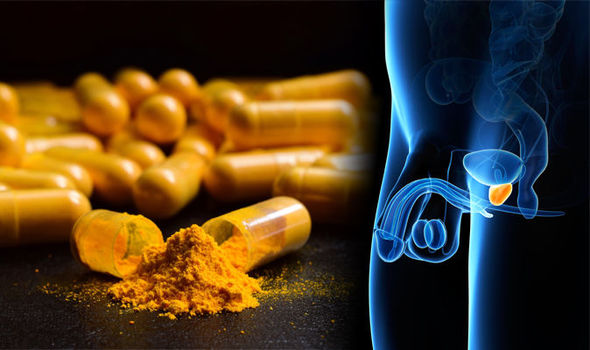With men’s health and supplements like Prostate 911 on the rise, it’s important that we take a deeper look into what exactly the prostate is. The prostate is a gland that is part of the male reproductive system. It is small, about the size of a walnut, and wraps around the upper part of the urethra. One of the prostate’s major responsibilities is creating most of the fluid found in semen. However, if there is inflammation or enlargement in the prostate, it can negatively affect a person’s sexual function or even the basic act of urination.
It is important to take good care of the prostate to ensure no major problems show up and as a basic part of maintaining your health. Eating a healthy diet and getting plenty of exercise are good places to start, but you may need to take supplements to take care of the prostate and ensure that it does not become inflamed or lead to other problems.
Taking supplements can be a great way to protect the health of your prostate and to prevent or treat issues as you get older. However, it can be tough to decide which supplements are best to help improve prostate health. Let’s take a look at some of the best supplements that can make a difference.
Zinc
While getting plenty of vitamins and minerals is a good start to caring for your prostate, zinc is one mineral you should strongly consider making a part of your supplemental routine. After all, low levels of zinc in the body are linked to an increased likelihood of developing Benign Prostatic Hyperplasia (BPH). Taking zinc can also help calm some of the already present symptoms.
Zinc can help make it easier to manage the symptoms of BPH as well. Pumpkin seeds and pumpkin seed oils are really good for helping to fight off some of the symptoms of BPH. This could be due to the diuretic properties found in pumpkin seeds, which will help to restore the normal urine flow while relieving some of the discomfort found in the bladder.
For adult men, you should aim for 9.5 mg to help take care of the prostate. Pumpkin seeds are a good place to start, but cashew nuts, beef, wheat germ, and eggs are also high in zinc for you to enjoy.
Vitamin D
While zinc is a good starting mineral, it is not the only vitamin or mineral you can add to your diet to improve the health of your prostate. Another important option to consider is vitamin D – there have been some promising results when it comes to the prevention and management of BPH with the use of supplements rich in it.
In several studies on this topic, there is a correlation between not having enough vitamin D in the diet and the growth of the prostate gland. This increased size could be inherently responsible for a patient’s unfortunate urinary symptoms. Getting enough vitamin D can help avoid this problem.
The problem here is that low vitamin D in the diet can encourage cell growth and inhibit the way the cell dies off naturally. So, while you get more new cells, the old ones are not being removed at the same time leading to a buildup. Having low levels of vitamin D in the body could help manage prostate cells to prevent it from becoming a problem.
To make sure you get enough vitamin D into your diet on a regular basis, it is a good idea for men to get a minimum of 10 mcg each day. Most of the vitamin D that we need can be obtained naturally from the sun. However, if you live up north, you may need to take a supplement to get enough vitamin D in the winter.
Vitamin C
Research shows that vitamin C could be a beneficial supplement to start taking if you are worried about your prostate health because this powerful vitamin not only prevents you from getting sick but it can reduce the chances of developing enlarged prostate symptoms.
To start, when we consider BPH, oxidative stress is one of the contributing factors to developing this disorder. This explains why nutrients like vitamin C, which has a ton of antioxidant properties in it, can be key to relieving some of the symptoms. The key to seeing the best results here is to maintain a regular intake of vitamin C throughout the year, and not just during cold and flu season. Eating healthy fruits and vegetables or taking a multivitamin can help with this.
When you take in enough vitamin C each day, it aids in preventing the expansion of the HIF-1 alpha molecule. This molecule may have a complicated name, but it is responsible for influencing the growth of your prostate cells. Stopping this molecule with the help of vitamin C can reduce the chance of prostate enlargement, plus, eating all those good fruits and vegetables can help keep the prostate healthy for longer.
So, how much vitamin C do you need for the health of your prostate? Try to aim for a minimum of 40 mg of vitamin C each day. Many great foods contain high amounts, including oranges, broccoli, strawberries, and peppers. You can also take a vitamin C supplement to ensure you are getting enough to keep the prostate healthy.
To make sure you get enough of the nutrients above, consider taking a multivitamin. Many foods are high in each of these nutrients, so you can choose to consume them through your diet. Nonetheless, maintaining the higher levels is key to seeing results with your prostate health, and taking a multivitamin can be helpful in getting this done.
The Bottom Line
No one wants to deal with prostate problems as they get older, but if you are missing out on some of the critical nutrients your body needs, then you may also be preventing the prostate from acquiring the tools it needs to work properly and maintain its health. To help keep the prostate healthy, consider taking in more of the vitamins above to see a difference. Making use of powerful supplements such as zinc, vitamin D, and vitamin C will benefit your prostate and prevent many potential ailments from ever becoming a problem.












